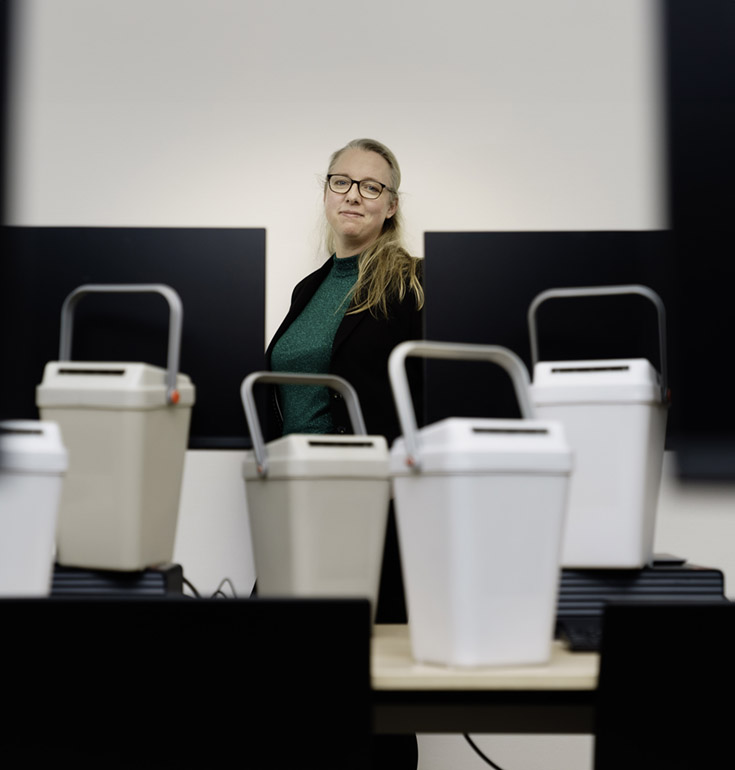
ThebreakthroughMarijke Leliveld
An unexpected data set
‘My breakthrough came in the form of a casual remark’, says associate professor of consumer ethics Marijke Leliveld. In 2014, some people with a research agency visited her marketing department to promote their panel consisting of Dutch consumers.
While there, they casually mentioned that they paid their respondents for their participation. They then registered what the participants did with that money: donate it or keep it to themselves.
Leliveld was flabbergasted. ‘This was exactly what I needed for my research on donation behaviour, and I didn’t even know this data set existed’, she says. ‘I could have done my research on an organisation like the World Wide Fund for Nature, but that’s just a single charity, so that doesn’t leave people fully free to choose. Besides, these organisations regularly campaign, which impact people’s decision processes.’
Complete
This data on donations was less impacted and more complete, says Leliveld. ‘It had charities like Unicef, the Red Cross, and the WWF. A really broad range. I had been looking for a data set like this forever, but it’s nearly impossible to find.’
There was just one obstacle left: the research agency had to be willing to share their donation administration. ‘They were surprised we even asked for it’, says Leliveld. ‘But in the end, they were open to selling us their data.’
Other, experimental research suffers from problems where people don’t complete questionnaires or quit halfway during the study, says Leliveld’s colleague Hans Risselada. He was in charge of the statistical analysis of the data. ‘The research agency’s panels often consist of the same members for months on end. That means they are rewarded multiple times, and they always register what they do with it.’
Switch
This did lead to quite a lot of data: 300,000 donation decisions by 20,000 people, over a period of ten months. A large, if imperfect, data set. ‘Data sets like these can be a bit tricky’, says Leliveld. For instance, keeping the reward was the standard option, and people had to actively make a choice if they wanted to donate it. ‘That makes it easier for people to keep the money, which might mean they did that more often.’
Their research question was whether people made the same choice every time, or whether they varied. ‘People kept making the same decision’, says Leliveld. A little over 89 percent of participants always kept the money, while 6.4 percent donated it. Only 4.4 percent of people switched between keeping the money or donating it every time they had to decide.
The results are in line with what Leliveld calls moral consistency. ‘Although we can’t use this data to explain why people kept making the same decision, because we can’t ask them.’ In any case, it didn’t look like a concept such as moral compensation played a big part: people didn’t switch between keeping and donating to ease their conscience.
Open access
The study was finally published in 2017, in the journal Science Advances, an open-access version of renowned scientific journal Science. ‘We didn’t think we’d actually get in that easily, but they accepted the study right away’, says Leliveld. ‘It shows how widely acknowledged our research is. Colleagues really loved it, too.’
Leliveld deliberately wanted to publish in an open-access journal. ‘Universities usually spend millions on licenses just to gain access to their own articles, while we also review our colleagues’ articles for free. Besides, researchers in less fortunate countries don’t have access to those journals at all, which makes research more difficult for them. That’s absurd to me.’
Doing the donation study together with Risselada also taught her how fun and useful doing joint research can be. ‘We never could have done it without each other. Whenever possible, we’d like to work together more often.’